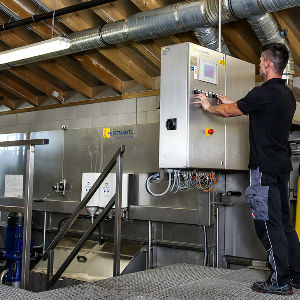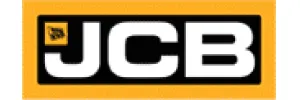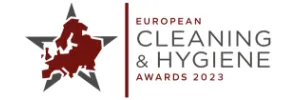News & Insights
Read the latest news from us and our clients across the globe

Posted on 10 November 2014 by adtrak.admin
Mess-free collection in easy to clean bins
The FatBoxx® fat and cooking oil collection system is being used by a German recycling specialist, reports Peter Ridley, with the UK taking an interest too.

Lesch Altfettrecycling is a professional recycler of used cooking oil and fat, based in Germany. It specialises in reprocessing these materials for biodiesel or electricity power generation, using a pioneering collection system combined with a purpose built processing plant.
The collection system is FATBOXX®, a wheeled container specially designed to collect a wide range of separated food-related materials including used cooking oil, fats and grease; food waste from the catering or food processing sector and animal by-products from meat rendering plants and slaughterhouses.
Customer usage and collection process
A fleet of vehicles collects the FATBOXX®, 120 and 180 litre containers on a bin replacement system, from over 18,000 customers in the catering, bakery and butchery sectors across Southern Germany.
Commercial recycling companies, such as Lesch and prominent organisations in the UK, find that FATBOXX® helps them deliver a better level of service to their food sector customers. One of the benefits for both parties is a measuring scale on the body of the translucent PE containers, which enables customers to easily see how full the container is with used cooking oil, whilst the recycling specialist can easily measure the level at the point of collection, enabling straightforward payment for the amount collected. Data capture can be linked to RFID chips inserted in the bin, to fully audit each collection following replacement with an empty FATBOXX®.
One reason that Lesch chose the advanced FATBOXX®, system was that customers find it is very user friendly, as large ‘Big Foot’ wheels give it a higher load bearing capability and enable it to be moved easily in and out of premises, whilst also having a quick release wheel mechanism to allow bins to be re-nested into a stack to save space at a storage depot.
The FATBOXX® can be stacked assembled or hooked to a wall, with a minimal footprint to save space in the kitchen, on a vehicle or at a servicing depot. It is designed to fit next to or under the counter in food preparation areas, with excellent stability and it has a lockable, sealed lid which prevents leaks and unpleasant odours, as well as eliminating access to flies and pests.
In contrast, standard plastic drums have a much shorter lifespan and spillages are common., whilst pouring used or waste cooking oil down the sink or drains can cause waste to congeal and block public sewers. The backed-up sewage can then spill into rivers and streams causing environmental damage.
Liquids as hot as 110 degrees can be placed in the FATBOXX®, without distorting the body, and its rounded bottom and spherical shape makes the bin easier to empty and clean, as there are no corners or edges to trap residues. The container is EN840 certified – the recognised European Standard for mobile waste containers.
A full FATBOXX®, is exchanged for a clean container, which has been comprehensively treated by Lesch in a fully automated flow through washing system.
Processing
The collection containers are brought into a purpose built automated processing plant where they are emptied and cleaned; the used cooking oil fats and grease are either converted to biodiesel or used for electricity generation, which can be used to power the plant itself plus local households and businesses.
FATBOXX®, can be inverted and emptied mechanically, using a single or multi-bin platform hoisting device. In the case of Lesch, a specially designed automated lifting and tilting mechanism, empties the containers completely without residue retention, into a fat melting bunker, followed by a pressured steam treatment to liquefy material allowing it to flow.
In a three-phase decanting process, the liquid grease is separated by centrifuge into its three components of fat, water and solids (such as bread crumbs, remnants of French fries, etc.).This overall process is purely mechanical – without the addition of any chemicals.
The FATBOXX®, is then put into a highly sophisticated automated washing plant for thorough, professional and environmentally friendly cleaning, before they go back out to the next customer. The hot water used for this cleaning is heated via a CHP system, using old grease.
Recycled materials
The largest portion of the purified grease is further processed in the fuel industry and used for biodiesel production, a greener alternative to petroleum diesel that reduces carbon emissions. Some is also used in the cosmetics industry and in the manufacture of detergents.
Furthermore Lesch operates an on-site CHP with a photovoltaic system on the roof of its production facilities, to generate electricity and feed the excess into the local utility grid.
Interest in these modern efficient processes is gathering pace in the UK, where the FATBOXX® system is being used by a number of resource recovery specialists including Olleco, A.R.R.O.W. Edible Oils Ltd, Henry Colbeck Ltd, and O’Hara Oils to collect and convert used cooking oil into biofuel or renewable energy and by Grundon Waste Management who collect food waste before converting it into green electricity and fertiliser at specialist anaerobic digestion facilities.
For more information on FATBOXX® call 01728 726636, email office@peterridley.co.uk or visit www.peterridley.co.uk
Published in MRW – November 2014
Experts in Public Relations Services & Communications Management
Our ServicesGenuine industry specialists in cleaning and hygiene, environmental and recycling, and facilities management
Our Sectors












